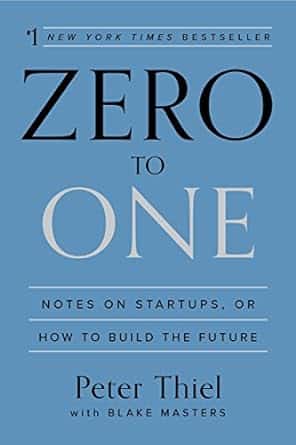Thiel starts by explaining that globalization and technology have created a world that is more stable and peaceful than ever before. However, this stability means there is less low-hanging fruit for entrepreneurs to pick. The great economic growth of the late 20th century came from companies duplicating existing businesses on a global scale. But simply copying what works today will not create major new value.
Instead, we need vertical progress that takes things from 0 to 1 – completely novel inventions like the computer or airplane. Horizontal progress that globalizes and digitizes is easy, while vertical progress is hard because you have to do something nobody else has done. But vertical progress is crucial for advancing civilization.
Creating new technologies requires a defiant attitude that goes against the crowd. Most people assume the future will be like the present, just more so. But real progress comes from an optimistic belief that the future can be better than today. This view is inherently controversial. A startup founder has to believe their new idea is right when everyone else thinks it’s wrong.
Thiel lays out several principles for how to think about the future and develop valuable technologies:
- Monopolies are good, competition is bad. A monopoly dominates a market, so you want to own one. Competition means no one wins excess profits.
- You must start small and monopolize a niche market. Then scale up from there.
- Distribution is more important than sheer product quality. The most perfectly engineered technology is worthless if you can’t get anyone to adopt it.
- Sales matter just as much as your product. Distribution and sales ability determine market success.
- Follow the secret – don’t succumb to conventional wisdom. Have the courage to think for yourself.
- Be weird. Weird insights are necessary to find unique solutions to problems.
- Don’t disrupt – avoid competition as much as possible.
- Iterate and improve on an idea over time. But don’t pivot endlessly without a solid foundation.
Thiel uses examples of companies he founded or invested in early like PayPal and Facebook to illustrate these principles in action. For instance, PayPal focused on its initial niche of powering eBay payments, then expanded to become a general online payments company. Facebook started by serving just Harvard students, then spread to other colleges before opening up more broadly.
He also examines companies like Tesla that are creating whole new categories of technology rather than just copying old ones. And he emphasizes that while hard technology challenges are crucial, investing in distribution, sales, and culture building are equally important.
Thiel believes properly founded technology startups are the best way to get innovation. Large organizations tend to be too bureaucratic and slow to develop radically new ideas. Universities are too isolated from the real world. Governments should invest more in basic research, but not try to commercialize technologies directly.
The most successful founders are driven by the desire to create something new, but also have an engineering mindset that focuses on building products rather than just talking about abstract ideas. They aspire to monopoly and are willing to be weird and controversial in order to pursue their visions.
Zero to One offers a contrarian perspective on building successful companies in a world filled with empty hype about the future. By honing in on core principles about creating value through technology, it provides an intellectual foundation for entrepreneurs working today. Thiel urges startups to ignore convention, develop breakthrough innovations, and diligently turn zero to one.
